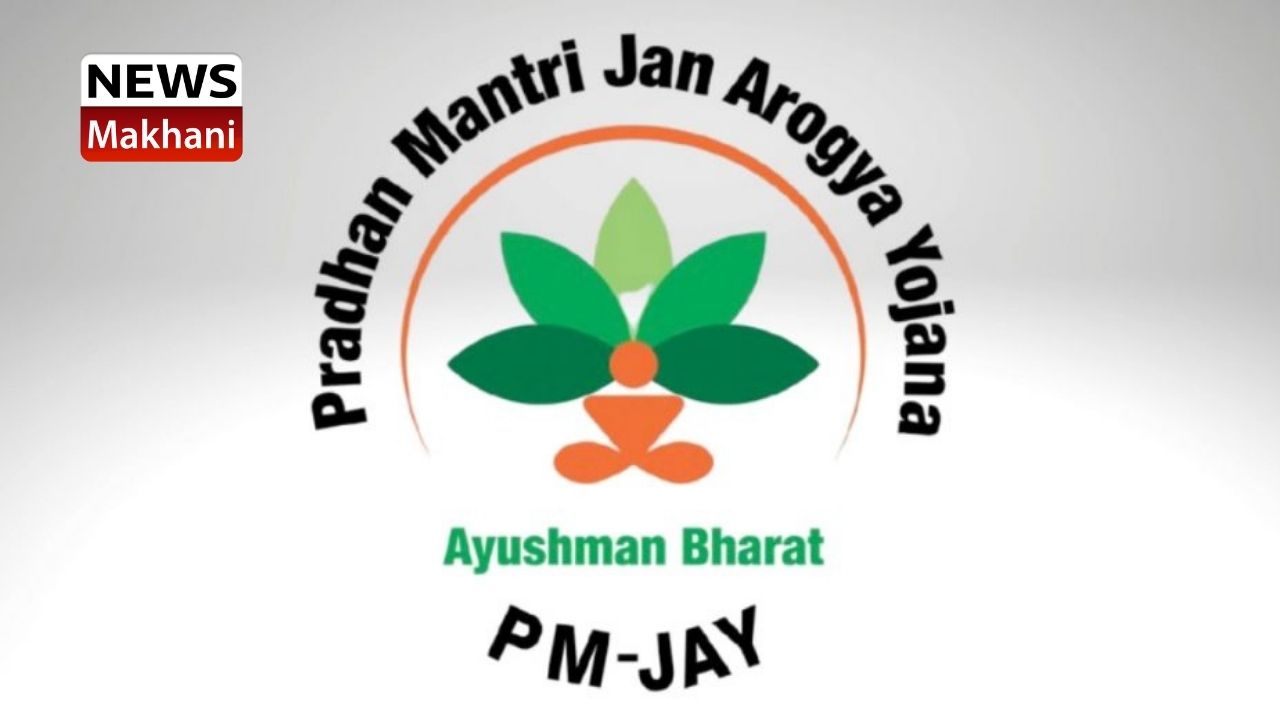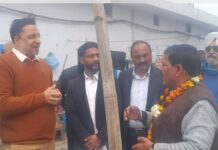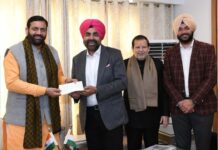Transforming J&K
SEHAT: A people’s movement for advanced healthcare
Govt. launches massive ‘One Person One Golden Card’ campaign to enroll maximum population
‘Gaon Gaon Ayushman’ drive launched to target rural population
SRINAGAR, FEBRUARY 26 2022
In order to provide best and advanced health care facilities to the people of Jammu & Kashmir, the government launched AB-PMJAY SEHAT scheme in convergence with the Central Government’s AB-PMJAY scheme to provide free of cost ‘Universal Health Insurance Coverage’ up to Rs. 5 lakh per family on a floater basis.
READ MORE :-Close monitoring being ensured for timely completion of SASB Yatri Niwas at Ramban
After the successful start of this scheme, the government launched massive public outreach campaign ‘One person one Golden card’ to raise awareness regarding this flagship scheme and enroll maximum people in it.
The ‘One person one Golden card’ campaign targets the distribution of 58 lakh Golden cards under the AB-PMJAY & AB-PMJAY-SEHAT health insurance schemes, among the beneficiaries by organizing special camps at the Panchayat level. The aim is to cover the poor families from rural background and ensure greater coverage with easy access to affordable healthcare facilities during health emergencies.
Among the 10-point campaign, specific focus has been laid to step up the targeted delivery of healthcare schemes for the poor and to ensure 100 percent saturation of eligible beneficiaries in a mission mode.
Even though the State Health Agency is presently organizing ‘Gaon Gaon Ayushman’, wherein ‘Golden card’ generation drive is closely monitored right from the Panchayat level, the ‘One Person One Golden Card’ campaign fixes a tangible target for covering the remaining 58 Lakh population in the scheme.
Under AB-PMJAY SEHAT scheme, a Ayushman Golden Card. is provided to the beneficiary through which the government and private hospitals selected under the scheme can get free treatment upto Rs 5 lakh.
There is no cap on family size and age as this health cover is inclusive for all. Moreover this scheme holds women, children especially girls and those over 60 in special regard. The scheme provides those in need to get secondary healthcare benefits offered by specialists like cardiologists and urologists. Moreover, advanced medical treatment like that for cancer, cardiac surgery and others is also covered.
Primary health care is people’s movement and their participation and mobilization to access the benefits is a key to make this campaign a huge success. SEHAT is a unique health scheme which does not discriminate and brings out the spirit of social equality in the health sector. Good health and well-being of people is the ultimate aim of the government. J&K is one of the first UTs to implement the ‘Universal Health Insurance Coverage’.
As per the data available, till date 60 lakh Golden cards have been generated and 16.36 lakhs (80%) families have been registered with at least one family member verified under PM-JAY and AB-PMJAY-SEHAT Scheme. Removing the burden out-of-pocket expenses, PMJAY aims to make the entire process of paying for healthcare cashless. All public and empanelled private hospitals have been directed to not charge any extra payment for medical care from all PMJAY beneficiaries to reduce corruption or delay in services.
Under AB-PMJAY and AB-PMJAY SEHAT, during the current policy period, 147582 cases have already been benefited amounting to Rs. 221.66 Cr, out of which Rs. 129.83 Cr have already been paid to the hospitals by the insurance company, thus ensuring free of cost specialized treatment to all.
Additionally, the beneficiaries under this scheme can seek treatment across India. This scheme covers pre-existing illness and makes mandatory treatment in all public hospitals. Since the scheme covers such a large population, it will be purchasing services from private healthcare providers. This scheme also encourages the production of more affordable healthcare equipment and drugs.
As health insurance is a financial necessity for everyone, this scheme will certainly improve the quality of life of the weaker sections of the society by ensuring they get timely care and finances to tackle their health issues.

 हिंदी
हिंदी






